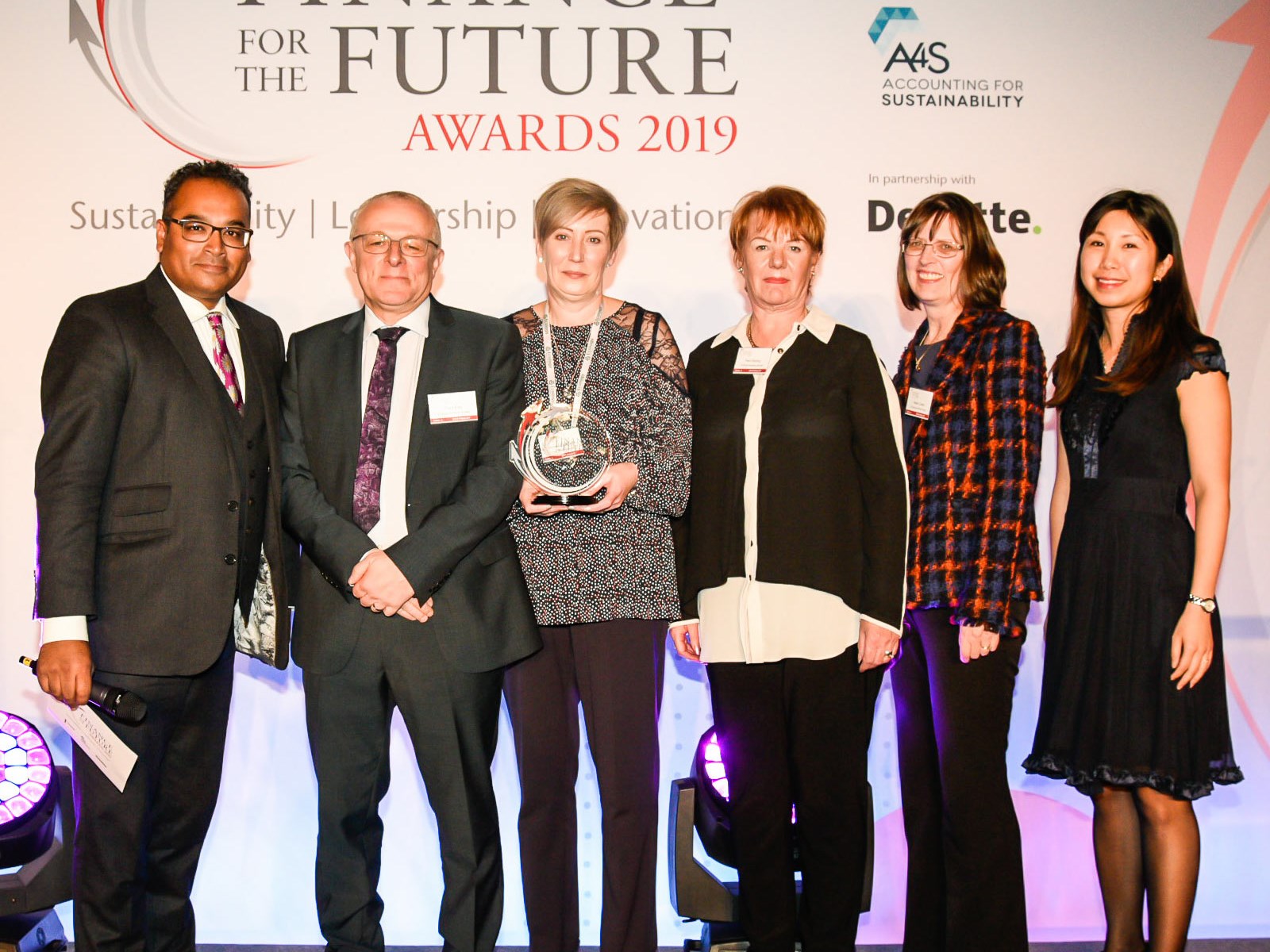A profile of Ecology Building Society: Finance for the Future 2019 award winners.

What
Ecology Building Society has been committed to building sustainable financial products for over 35 years. Its mortgages are funded by a range of ethical savings accounts and have supported energy-efficient construction, renovations and sustainable communities. Ecology is a key player in the green building industry, providing lending for properties and projects that have a positive environmental or social impact. Ecology-backed projects achieve strong EPC ratings, with 78% at EPC B or above; the England average is EPC D.
Ecology developed its mortgage offerings with the goal of promoting sustainability and tackling climate change. It incentivises mortgage customers to improve their property’s energy performance by offering a range of ‘C-Change’ discounts. Customers receive discounts for building or buying an energy-efficient home, for making significant energy-efficiency improvements and for implementing specific energy-saving systems.
Ecology is demonstrating that environmentally conscious financial products can be both profitable and sustainable. It aims to expand green building and is committed to sharing its ideas and practices so that other lenders can introduce sustainable lending practices. Ecology also contributes to developing a supportive policy environment by engaging with government and other policy forums, including the Global Alliance for Banking on Values and the Europewide Energy Efficient Mortgages Pilot Scheme, showing climate leadership at all levels.
Why
Ecology is owned by its members, and sustainable development is enshrined in its memorandum. Every aspect of the organisation is geared towards that goal and members hold the leadership
accountable. Sustainability is embedded in policies, product design, lending decisions and fundraising.
Over 27% of the UK’s carbon emissions are related to buildings, and Ecology believes that this is a crucial area where we need to improve energy efficiency. For consumers, though, it can be hard to find financing for socially and environmentally conscious building projects. Ecology plugs this gap. By tying its lending to sustainable development objectives, Ecology has realised strong growth while championing an economy that helps rather than damages the environment.
The judges were impressed with the overall goal of Ecology Building Society in funding the improvement of the existing UK housing stock, effectively implemented via their ‘C-Change’ product.
How
Ecology has ensured that sustainable financial products are core to its mission and activities in the following ways:
- Ecology’s mission to build a greener society is enshrined in its governing document. It also aligns its wider business practices to the United Nations Sustainable Development Goals.
- All of Ecology’s financial products are designed for sustainability. Savers’ personal capital is mobilised to enable socially and environmentally conscious lending.
- Ecology uses incentive structures to align mortgage customers’ interests with Ecology’s green mission. With its C-Change mortgage discounts, lower interest rates are only available for higher energy-efficiency standards. A customer with an energy-efficient new build could get a 1.25% discount on the standard variable rate.
- Ecology’s lending and discounting practices subvert the traditional model of mortgage underwriting. Instead of pricing based solely on property and credit risk, climate risk is built into mortgage pricing.
- To focus on the projects and people who can make a difference, Ecology has a robust assessment process. Underwriters examine the detail of each project to make sure it’s feasible, well planned and aligned with Ecology’s mission.
- Ecology measures the carbon footprint of its direct and indirect activities, apart from lending, and has offset its carbon emissions back to 1981. With this data, Ecology can craft a compelling story for members about the organisation’s work. It is currently looking at a methodology for measuring the carbon impact of its lending.
- The policy environment and the market are also key drivers in creating incentives to develop and access sustainable financial products. Ecology actively collaborates with government and participates in several industry coalitions to help lead those big changes.
We’ve demonstrated that building a model on environment-conscious building can be … both profitable … and successful, and it is possible to manage the risks from doing that while creating good social and environmental outcomes. Our model has been entirely built around achieving the mission of building a greener society.
Advocating for green finance and sustainable lending
Ecology recognises that green finance can play a major role in tackling the climate crisis and meeting the targets set in the Paris Agreement. So as well as incentivising individuals to achieve energy-efficiency goals, Ecology works with coalitions, policy groups and all levels of government to champion policy measures that can create incentives for people on a broader scale.
As part of the Europe-wide Energy Efficient Mortgages Pilot Scheme, Ecology is a pioneer in work to develop a recognised model for mortgage financing that incentivises borrowers to improve energy efficiency in their homes. Ecology hopes that other organisations will be inspired by the pilot scheme to offer their own green mortgages.
Ecology is also a member of the Global Alliance for Banking on Values, an independent network of banks using finance to deliver sustainable development. Ecology works with other members across the world to share best practice. In the UK, Ecology supports the green building sector in its work with the UK Green Building Council, the Association for Environment Conscious Building and the Passivhaus Trust. Ecology has also fed into UK government policy deliberations, sharing details of how its C-Change mortgages work.
Ecology is on a mission to share its knowledge, leading the way in showing how financial products can be used to reduce carbon emissions. By being open with other lenders about how its strategies can be embedded, Ecology hopes to make green financial products mainstream, amplifying these products’ potential for positive environmental change.
Download the case study
Want a copy of this case study? You can download a PDF version using the link below.
